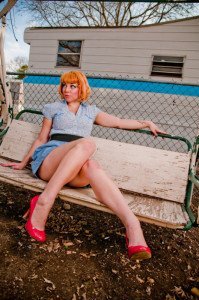Reflection
“If it were possible to define generally the mission of education, one could say that its fundamental purpose is to ensure that all students benefit from learning in ways that allow them to participate fully in public, community, and economic life. Literacy pedagogy is expected to play a particularly important role in fulfilling this mission.” — The New London Group
I find it difficult to write a reflection about literacy without including the entirety of my two years here at Chico State. I have had absolutely incredible instructors here in the English Department. The philosophy of these instructors is one I have taken a hold of and will be bringing into my classroom when I am finally a teacher. I think that included in the philosophy of these instructors is the fact that literacy is individual, societal, fluid, malleable, relative, social, professional, academic, personal, public, and adaptable. To try to narrow literacy down into one simple definition would be an injustice to us humans and our varying literacies. These instructors have acknowledged that we students have these varying and/or multiple literacies and they have encouraged us to explore, try new things, tap into our existing literacies, question, investigate, and participate in discussions in the classroom and also in our writing by entering the discussion of other writers.
I do believe that at the base of literacy we will find reading. But, I don’t mean reading in the traditional sense–reading a book (well, yes, reading in the traditional sense, too). I think reading has several forms. Reading is, to put it simply, just paying attention. We can read words, body language, photographs, emotions, graffiti, a teenager’s wall in their bedroom, furniture (or classroom) arrangements, and many, many other things. This is the beauty of literacy; it is in everything we all do on a daily basis even if we don’t think of it as being literacy.
While interning this semester in two different classrooms, I had a very eye opening experience. I have learned a lot about what I will NOT be doing in my classrooms. I have also learned a few things that I will be doing. From my observations, I am seeing that, currently, students do not have any kind of ownership over their education. Teaching is being done TO them rather than WITH them. They come in to the classroom, do what the teacher says, and then go to their next class. They aren’t seeing the value in the work they are doing. Honestly though, I can’t really blame them. If I had classes like that right now, I’d be feeling the exact same way. And, why should they have ownership? No one ever asks them about their education, schools, classrooms, or teachers. No one cares to ask what the students feel that they need to help them learn. Students, due to the government’s interference, are very passive about education. This is the opposite of what we should be seeing.
In order to allow the students the opportunity to take ownership over their own education, we need to let them know that mistakes are ok; it’s how we learn. Making mistakes and then correcting them is one way a person takes ownership. Keri Franklin says, “I needed to make mistakes, make corrections, and ask questions within the context of my own tweeting.” Just replace “tweeting” with writing (or anything for that matter) and this will apply to our future students. It’s important for us to remember that mistakes are ok, but even more important than that is for us to teach our students that mistakes are ok.
Recently, a student—Jeff Bliss—got fed up with his History teacher being passive in the classroom. I’ll include the url for the video at the end of this post. Everything Bliss says in the video is absolutely correct. Bliss was that one student to step out of the box and question and insist on an active education. I watched another video that was an interview of him after the scene in his classroom and something he said really stood out to me: “Don’t be afraid to stand up. Don’t be afraid to question teachers . . . Make sure that you’re givin’ yourself the fullest of you and strive in school to do better” (Jeff Bliss). What Bliss is telling his fellow students is to take an active role in their own education and hold the teachers accountable for creating that active atmosphere.
When it comes to my future students, I can only hope to be the kind of teacher I have had the privilege of studying under here at Chico State. I hope that my students feel as encouraged and supported as my instructors have made me feel. I hope that they understand that they can question me and what we are learning. I hope that their individuality can be expressed. I hope that their literacies are brought forth and that they learn new literacies. I hope that they explore the world around them. I hope that they take ownership and become actively engaged in their education. Most of all, I hope that they leave my classroom at the end of the year having done the best they can do and understanding that they have the power to decide their futures.
http://gawker.com/hero-student-goes-off-on-bad-teacher-after-getting-kick-496791676


 Website:
Website: